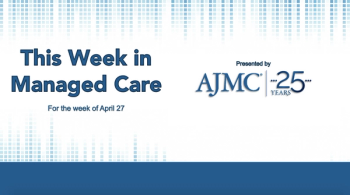
Health Care Delivery
Latest News

CME Content


Inadequate access to health care can truly be a life or death matter, so health care policy designed to improve access to care, as the Affordable Care Act (ACA) is, can have a fundamental effect on making progress against cancer-related mortality and improving the quality of the care delivered, noted Fumiko Chino, MD, assistant attending radiation oncologist at Memorial Sloan Kettering Cancer Center in New York.

Medicaid expansion was associated with a decrease in nonprofit hospitals’ burden of providing uncompensated care, according to a study published in JAMA Network Open. However, hospitals did not redirect this financial relief toward spending on additional community benefits.

The Association of Accessible Medicines (AAM), which supports biosimilar development, argues that even if the Affordable Care Act (ACA) is overturned by the Supreme Court later this year, the Biologics Price Competition and Innovation Act (BPCIA) is severable and should survive.

Being uninsured carries with it a host of adverse health consequences, including more advanced stages of disease when seeing a physician, avoidable deaths, and not receiving lifesaving treatments for conditions such as heart failure.

The benefit was especially pronounced for Hispanics, the researchers reported.

The Supreme Court says insurers are owed $12 billion under the Affordable Care Act; a study finds those with cancer are at higher risk from coronavirus disease 2019 (COVID-19); a survey shows millions would avoid seeking care for COVID-19 due to cost.

The US Supreme Court ruled in favor of health insurers seeking $12 billion from the federal government under the risk corridors program set up by the Affordable Care Act (ACA).

In Uncertain Times, Public Service Leadership More Important Than Ever: A Q&A With Sherry Glied, PhD
To mark the 25th anniversary of the journal, each issue in 2020 will include an interview with a healthcare thought leader. For the April issue, we turned to Sherry Glied, PhD, dean of New York University’s Robert F. Wagner Graduate School of Public Service.

A record number of Americans filed for unemployment last week; President Trump decides not to reopen Affordable Care Act enrollment; a survey found a majority of physicians say they cannot test for COVID-19 fast enough.

As the Affordable Care Act (ACA) turns 10 years old, the coronavirus pandemic is focusing a spotlight on the coverage gains made under the landmark law.

Research highlighting these trends, based on 10 million death records pulled from a CDC database, will be presented at the American College of Cardiology’s Annual Scientific Session together with World Congress of Cardiology (ACC.20/WCC), which is taking place as a virtual meeting March 28-30.

This week, the top managed care news included the COVID-19 crisis bringing changes to telehealth and testing; presentations of science in virtual formats; the Affordable Care Act turns 10.

To mark the 25th anniversary of the journal, each issue in 2020 will include an interview with a healthcare thought leader. For the March issue, which marks the 10th anniversary of the Affordable Care Act being signed into law, we turned to Representative Frank Pallone Jr, D-New Jersey, who played a key role in the law’s writing and passage.

Investigators tracked time to treatment for 3 types of cancer in states that expanded Medicaid coverage on January 1, 2014, comparing rates before and after the expansion. Patients with new diagnoses of invasive breast, colon, or lung cancers aged 40 to 64 years were included in the analysis.

Federal incentives fail to spur development of new drugs to treat rare diseases; alcohol-related deaths have risen steadily over the past several years; will CMS stop auto-enrolling low-income individuals in exchange health plans?

The second US Coronavirus death was reported in EvergreenHealth hospital in Kirkland, Washington; extended-release drugs were shown to cost almost $14 billion more than twice-a-day medications over a 5-year study; the Supreme Court plans to hear the third challenge to the Affordable Care Act in October.

As a whole, the public does not realize that certain health coverage benefits stem from the Affordable Care Act (ACA).

Writing for the panel, Judge David Sentelle said HHS Secretary Alex Azar ignored predictions that thousands of people would lose their healthcare coverage.

To mark the 25th anniversary of the journal, each issue in 2020 will include an interview with a healthcare thought leader. For the February issue, we turned to Gail Wilensky, PhD, an economist and senior fellow at Project HOPE.

The FDA gives marketing approval for a test that screens for Duchenne muscular dystrophy in newborns; acetaminophen is facing a possible statewide ban in California; the Supreme Court will not rush its decision on the Affordable Care Act.

The Supreme Court announced on January 17 it will hear a case regarding employers’ ability to limit access to free birth control under the Affordable Care Act. This marks the third instance the Court has looked at a case regarding applicability of the contraception mandate, but the first time with conservative Justices Neil Gorsuch and Brett Kavanaugh both on the bench.

Since 2016, racial and ethnic healthcare disparities have not improved; a new method of "reanimating" hearts from recently deceased donors for transplants is being tested; the new decade prompts concerns about an aging population.

Avalere Health broadcasted its annual Healthcare Industry Outlook for 2020 on January 9. The hour-long discussion included insights on some of the top healthcare topics predicted to have an impact in 2020. Although Medicare and drug pricing took center stage, artificial intelligence, the future of the Affordable Care Act, and 2020 presidential campaign platforms were among the subjects discussed.

AJMC® presents the results of our online poll of the top healthcare stories of 2019.








